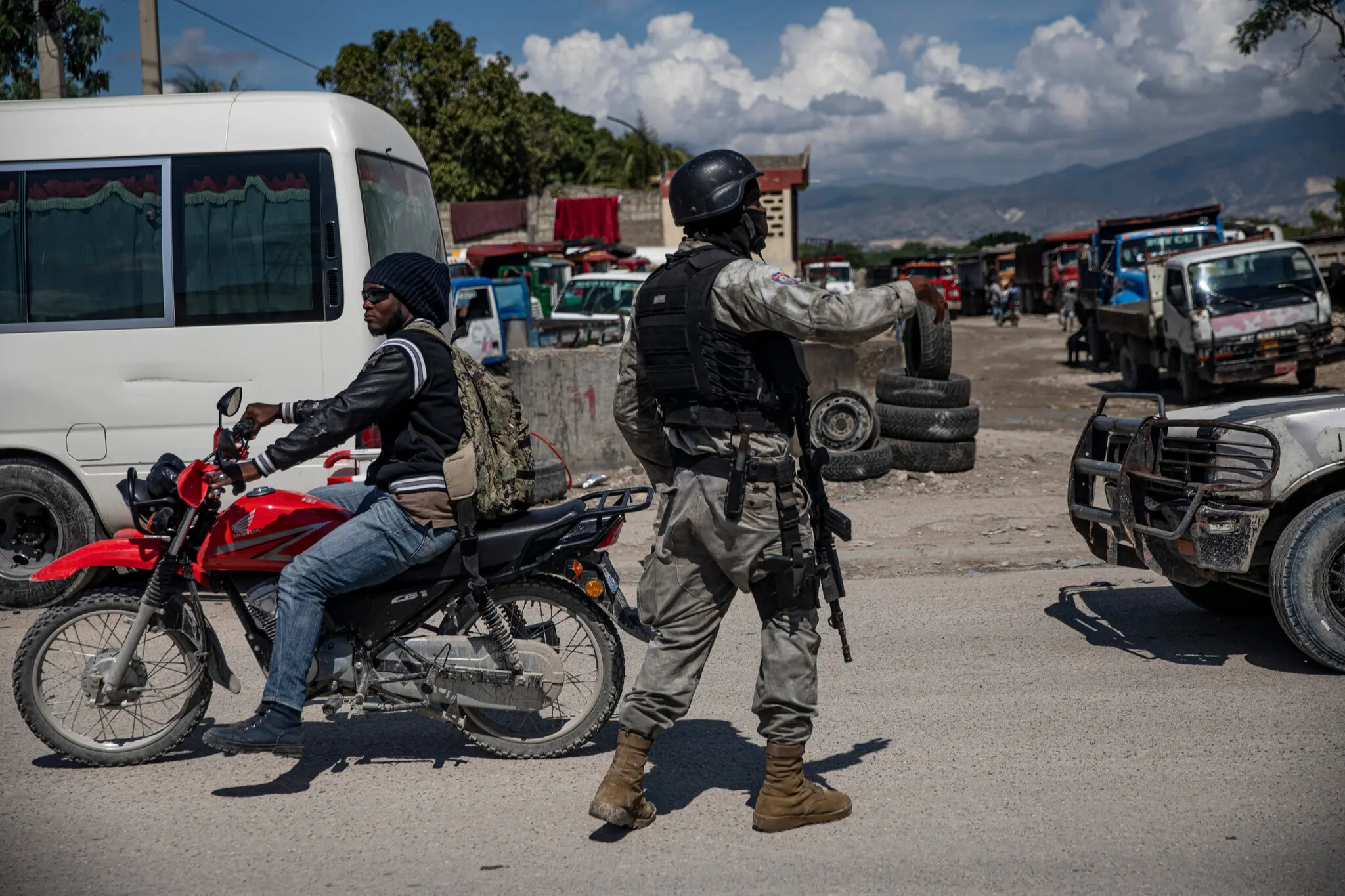
Gang violence is skyrocketing across Haiti’s capital, with dozens of people killed in Port-au-Prince in past week.
United Nations, July 16 (RHC)-- The United Nations Security Council (UNSC) has threatened to impose targeted sanctions against criminal gangs and human rights abusers in Haiti, as it unanimously passed a resolution on Friday that extended a UN mission to the Caribbean nation for another year.
While China voted in favor of the resolution, which extended the so-called BINUH mission until July 15, 2023, and called on countries to stop a flow of guns to Haiti, it expressed disappointment that the council had not imposed a formal arms embargo on Haitian gangs. “We hope that this will not send any wrong signals to the gangs,” China’s UN Ambassador Zhang Jun told the council, adding that Beijing would continue to push for a UN embargo.
Haiti has seen a surge in gang violence since the assassination of President Jovenel Moise in early July 2021, which fuelled political instability and sparked fierce battles between rival gangs for control of parts of the capital, Port-au-Prince.
The UN’s World Food Program warned earlier this week that hunger would likely rise amid the escalating attacks, which have displaced thousands of residents and paralysed key roads and transport links across the country.
Dozens of people have been killed in the Port-au-Prince neighbourhood of Cite Soleil since last Friday amid the gang violence, with a local human rights organisation saying on Wednesday that at least 89 had been killed while 16 others were reported missing (PDF).
“Along the only road into [the Cite-Soleil area of] Brooklyn, we have encountered corpses that are decomposing or being burned,” Doctors Without Borders (Medecins Sans Frontieres, or MSF) said in a statement on Thursday. “It is a real battlefield.”
Haitian demonstrators have also protested in the capital this week in anger over fuel shortages that have worsened as a result of the gang violence. The UNSC resolution drafted by the United States and Mexico that was approved on Friday demands an immediate cessation of the violence and criminal activities.
It also expresses the council’s readiness to impose sanctions that could include travel bans and assets freezes “as necessary” on individuals engaged in or supporting gang violence, criminal activity or human rights violations in Haiti within 90 days of the resolution’s adoption.
U.S. Deputy Ambassador Richard Mills said it will allow the UN mission to “continue its critical advisory efforts in support of facilitating political dialogue, enhancing the capacity of the Haitian National Police to address gang violence and protecting human rights."
However, the adopted resolution makes no mention of China’s call for UN Secretary-General Antonio Guterres to discuss with various parties the possibility of establishing “a multinational police unit” to help Haitian police tackle gang violence.
Instead, it asks Guterres to consult with Haiti’s government, “relevant countries” and regional organisations on “possible options for enhanced security support” and to submit a report by October 15.
Top civil society leaders in Haiti have rejected BINUH as a failure, with leading Haitian human rights activist Pierre Esperance telling Le Nouvelliste news outlet that it had “not accomplished one percent of its mission”. “Everybody recognizes that [BINUH] has failed in Haiti,” Monique Clesca, a Haitian journalist and activist, wrote on Twitter before the UNSC vote to extend its mandate. “So why is it that it’s renewal is being considered?”
Beijing had taken an unusually active stance in the Security Council negotiations on the resolution. To the ire of China, Haiti has long recognised the sovereignty of Taiwan, a self-ruled island that Beijing views as part of its own territory. Some analysts have said Beijing may see the impending political transition in Haiti as a chance to convince the country to swap its diplomatic ties to China.
“Its statement about gangs may be a constructive way for it to market a switch … while also recognising that Chinese companies would operate in Haiti following such a change, and thus it has real practical interests in getting the gang violence under control,” said Evan Ellis, a Latin America research professor with the US Army War College.
But Zhang, China’s UN ambassador, disagreed, saying Beijing’s only interest was to help the Haitian people and the Haitian government. “I don’t think it’s reasonable today to link the two issues,” he told reporters. “It’s true that they have diplomatic ties with Taiwan and we are against it. However, on this issue, that’s not the basis of our position.”

